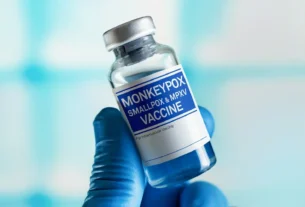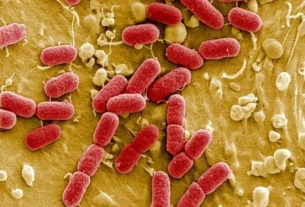In vitro fertilization (IVF) has become a beacon of hope for couples facing challenges in conceiving naturally. However, with its complexity and high emotional and financial costs, many wonder if lifestyle choices, such as alcohol consumption, might influence the chances of success. Emerging research suggests that alcohol may have a notable effect on IVF outcomes, adding a layer of consideration for couples embarking on this journey. This article delves into how alcohol affects fertility, its specific impacts on IVF procedures, and what prospective parents should consider.
Alcohol and Fertility: A Closer Look
Understanding how alcohol impacts natural fertility is foundational to grasping its potential effects on IVF. Alcohol consumption has long been associated with a range of health issues, including compromised reproductive health. Studies have shown that even moderate drinking can disrupt the balance of hormones essential for conception, such as estrogen and progesterone in women and testosterone in men. In fact, alcohol’s influence extends to ovulation, sperm production, and the overall health of eggs and sperm, which are all crucial elements in the IVF process.
For women, alcohol may inhibit ovulation, making it more difficult to conceive naturally. Men may also experience reduced sperm quality, including lower sperm count and motility, which are vital factors for successful fertilization. These effects raise concerns about how alcohol might impact assisted reproductive technologies like IVF.
How Alcohol Affects IVF Success Rates
The IVF process involves several stages that require optimal reproductive health to maximize the chances of success. Alcohol consumption can affect nearly every aspect of these stages, from ovarian stimulation to embryo transfer. Key factors that play a role include:
- Ovarian Stimulation: The first phase of IVF involves stimulating the ovaries to produce multiple eggs. Research has shown that women who consume alcohol may require higher doses of fertility drugs to achieve adequate stimulation. This can increase both the financial cost and potential side effects of IVF treatments.
- Egg Quality and Quantity: Alcohol is known to generate oxidative stress within the body, which can harm cells, including reproductive cells. Oxidative stress can reduce egg quality and impair the body’s ability to produce viable eggs. In IVF, poor egg quality can reduce the chances of embryo implantation and successful pregnancy.
- Endometrial Lining: A receptive endometrial lining is essential for a successful embryo implantation. Alcohol may disrupt the hormonal environment necessary for endometrial thickening, reducing the likelihood of implantation. A thin endometrial lining is often linked to lower success rates in IVF.
- Embryo Development: For men, alcohol has been shown to negatively affect sperm DNA integrity. Poor sperm quality can compromise the health of embryos, increasing the risk of failed implantation or early miscarriage. Both egg and sperm health contribute to the robustness of the embryo, a crucial element for IVF success.
Research on Alcohol and IVF Outcomes
Several studies have investigated the effects of alcohol consumption on IVF success rates, and the findings consistently point to a negative association. One study published in Obstetrics & Gynecology found that women who drank during the IVF cycle had a nearly 50% reduction in their chances of a live birth. Another study in Human Reproduction suggested that even low levels of alcohol consumption in the months preceding IVF could reduce the likelihood of pregnancy. These findings have contributed to recommendations that women undergoing IVF should abstain from alcohol to optimize their chances of success.
Further, men’s alcohol consumption appears to have a similar effect. According to research published in Fertility and Sterility, male alcohol use was associated with lower fertilization rates, reduced embryo quality, and lower pregnancy success rates. These studies highlight the shared responsibility between partners, suggesting that both men and women should consider abstaining from alcohol before and during the IVF process.
Expert Opinions on Alcohol and IVF
Medical professionals widely agree that abstaining from alcohol is advisable when undergoing IVF, though the exact level of risk may vary depending on individual health factors. Fertility specialists emphasize that alcohol’s potential to lower hormone levels, impair reproductive health, and increase oxidative stress can hinder the success of IVF.
Dr. Sarah Palmer, a reproductive endocrinologist, explains, “When preparing for IVF, we’re looking to create the most supportive environment for conception. Alcohol can throw hormone levels out of balance and introduce toxins that affect egg and sperm health. Abstaining from alcohol helps us maximize the chances of a healthy pregnancy.”
The American Society for Reproductive Medicine (ASRM) and the Centers for Disease Control and Prevention (CDC) both advise against alcohol consumption when attempting to conceive, especially with fertility treatments like IVF. These guidelines underscore the importance of limiting lifestyle factors that could interfere with conception.
Lifestyle Adjustments to Boost IVF Success
Alongside abstaining from alcohol, there are several lifestyle changes that can improve the chances of IVF success. Nutrition, stress management, exercise, and sleep all play important roles in reproductive health.
- Balanced Nutrition: A nutrient-rich diet supports the production of healthy eggs and sperm. Foods high in antioxidants, such as leafy greens, berries, and nuts, combat oxidative stress and improve reproductive health. Healthy fats, lean proteins, and whole grains are also essential for hormonal balance.
- Exercise and Weight Management: Maintaining a healthy weight and engaging in regular, moderate exercise can improve the odds of a successful IVF cycle. Excess weight can affect hormone levels and egg quality, while underweight individuals may experience hormonal imbalances as well.
- Stress Reduction: IVF can be a stressful process, and studies have shown that stress can negatively impact fertility. Practicing mindfulness, yoga, or meditation may help manage stress levels, creating a calmer, more receptive environment for conception.
- Adequate Sleep: Sleep is crucial for hormonal balance, immune function, and overall well-being. Quality sleep allows the body to repair and rejuvenate, which is particularly beneficial during the IVF process.
The Psychological Impact of Lifestyle Choices During IVF
While physical health is essential, the psychological aspect of IVF is also crucial. The process of IVF can be demanding, both emotionally and physically, and lifestyle choices like abstaining from alcohol can add to the pressure. For some, giving up alcohol may be challenging, particularly in social settings or as a coping mechanism. However, prospective parents often find that taking these steps offers a sense of control and empowerment over the IVF process, reinforcing their commitment to a successful outcome.
Additionally, the shared commitment to healthy choices by both partners can foster a sense of unity and support, which can be vital throughout the emotional ups and downs of IVF.
Alcohol and IVF Success: A Final Note
In summary, while the relationship between alcohol and IVF success is still a subject of ongoing research, the current evidence strongly suggests that alcohol can impair reproductive health and reduce the chances of successful IVF outcomes. Couples undergoing IVF may find it beneficial to avoid alcohol to create the most supportive environment for conception. With lifestyle adjustments, proper medical guidance, and a shared commitment, couples can maximize their chances of success on the path to parenthood.





